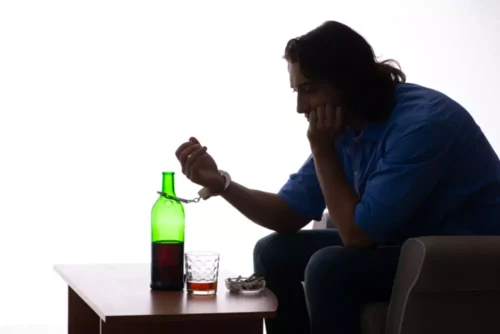
Other than gently guiding conversation, the group leader is responsible for picking up on client issues that reoccur in group therapy and in daily life. Clients will oftentimes subconsciously demonstrate actions in group therapy that are representative of =https://ecosoberhouse.com/ their routine patterns and thought processes. For example, clients who are “people-pleasers” might exemplify this by constantly validating the comments of others while keeping their own stories to themselves in order to avoid potentially causing conflict. These instances serve as opportunities for the group leader to make suggestions and to give the client insight into habits that might need alteration. Observing individuals in this group dynamic gives therapists a different perspective that allows them to enhance the quality of care provided for clients.
- Art and other creative expression group activities provide people in recovery with an outlet for self-expression and emotional release.
- Group therapy fosters meaningful relationships and support networks among participants, enhancing their overall recovery journey.
- Suggest different coping strategies they could use to stay sober when triggered.
- This peer-to-peer format enables honest discussions, helping members explore their feelings and learn from each other’s experiences.
Understanding Group Therapy for Substance Abuse
Group therapy topics centered around self-reflection and mindfulness teach individuals to stay in the present moment, understand their feelings, and develop substance abuse group activities healthier ways of coping with stress and anxiety. Resilience is the ability to bounce back from adversity, and it’s a vital trait for those in recovery. Group therapy topics related to resilience can encompass stress management, emotional regulation, and self-care strategies. These discussions empower individuals to face life’s challenges without turning to substances for solace. Group therapy sessions focusing on relapse prevention equip individuals with the skills and mindset needed to overcome setbacks.

Understanding the Importance of National Recovery Month

They are a form of group therapy available free of charge all over the world, with no membership requirements (other than the desire to lead a life free of substance abuse). Please note that Two Dreams utilizes process groups as opposed to theme/support groups. We previously posted a list of 60 substance abuse group therapy activities to give readers an idea of what kinds of topics they might encounter during a theme/support group.
Homelessness Programs and Resources
These creative mediums offer a safe and supportive environment for self-expression and personal growth. By incorporating expressive arts into group therapy, individuals can enhance their overall well-being and increase their chances of long-term recovery. Group therapy is a form of psychotherapy where a trained therapist facilitates a therapeutic session involving a small group of individuals who share similar emotional or psychological concerns. These group sessions provide a supportive and confidential environment for participants to discuss their challenges, express their feelings, and gain insights into their own experiences and behaviors.
- Group members can offer insights, suggestions, and encouragement based on their own experiences, which can be incredibly valuable in the recovery journey.
- You can also encourage clients to replace addiction with healthy hobbies and transformative activities to uplift the recovery experience.
- It creates a sense of safety and security, enabling participants to explore their emotions and vulnerabilities in a supportive environment.
With knowledge, individuals can better comprehend the need for treatment and strategies to overcome addiction. Group therapy is a vital aspect in all levels of addiction treatment and continued care, including outpatient treatment and sober living. We believe that financial barriers should not prevent anyone from accessing high-quality addiction treatment.
Substance Abuse Group Therapy Ideas
- Trust also fosters a sense of camaraderie and connection among group members, which can be incredibly powerful in the recovery process.
- Respectful communication helps create an atmosphere of mutual understanding and empathy, allowing individuals to feel heard and validated.
- Recovery capital as prospective predictor of sustained recovery, life satisfaction, and stress among former poly-substance users.
- Substance abuse treatment is challenging, but recovery is possible with the right support and guidance.
- Pass out one half sheet of paper to each client and ask participants to write down their fears.
Another option for your substance abuse group activities, have the clients discuss being alone. Group members are encouraged to listen actively and attentively to others, valuing their perspectives and experiences. Respectful communication helps create an atmosphere of mutual understanding and empathy, allowing individuals to feel heard and validated. It also promotes a sense of equality within the group, where everyone’s voice is valued and respected. These practices are known to reduce anxiety and stress, which correlates with a decreased risk of relapse, while offering a supportive environment that contributes to sustained sobriety and well-being.

These activities teach people in recovery to recognize and reframe negative thought patterns, enabling them to develop healthier coping mechanisms. Engaging as a group in the following activities can help people facing addiction focus on their mental health and well-being and grow connections with peers who share similar struggles. TherapyPatron.com helps mental health professionals better serve their clients. Our (editable, fillable, printable PDF) therapy worksheets can help you streamline your practice, effectively deliver different types of therapy, and help your clients be their best selves. Let’s dive into the list of CBT group activities for adults recovering from substance use disorder and mental health issues. Addiction recovery group activities are wonderful tools for achieving and maintaining successful, long-term sobriety.
- By addressing underlying issues and triggers, participants gain the tools to manage stress and cravings in healthy ways.
- We particularly emphasize mindfulness, the concept of intentionally paying attention, and being present in the moment with compassion, with acceptance, and without judgment.
- Peer support networks foster accountability and motivation, helping individuals remain engaged in their recovery journey.
National Recovery Month
Topics may include identifying warning signs, seeking help during a crisis, and developing a strong support system. More information is below about understanding relapse and preventing drug addiction treatment relapse after substance abuse treatment. Mindfulness exercises encourage individuals to be fully present in the moment, heightening self-awareness and reducing impulsivity.


Gratitude journaling helps shift focus to the positive aspects of life, which can improve mood and build resilience. In this activity, members list and share three things they’re grateful for with the group. Reported treatment effects occurred in reduction in the number of drinks per 30-day period and number of days drank heavily per 30-day period. Coping skills workshops are super helpful in substance abuse recovery because they equip attendees with tools to manage stress and anger, fostering healthier ways to cope. This peer-to-peer support system helps individuals stay engaged and committed to their recovery goals.
By simulating scenarios involving peer pressure or social settings, participants can practice assertively declining offers of drugs or alcohol. These activities build confidence, enhance communication skills, and empower individuals to prioritize their recovery goals. Physical activities offer numerous benefits for individuals in substance abuse recovery. Regular exercise promotes physical well-being and supports mental and emotional health, helping individuals manage stress, improve self-esteem, and maintain sobriety. Sober living houses are alcohol- and drug-free living environments for a group of peers in recovery. Utilizing a peer-oriented social model modality, sober living houses rely on mutual sobriety support, self-efficacy, and resident participation.


